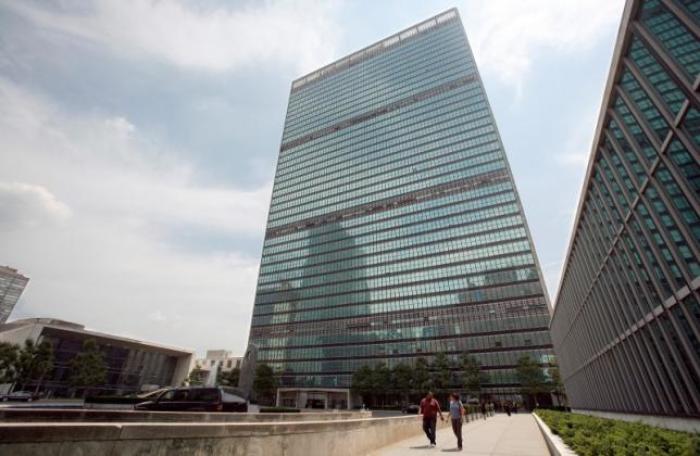Conservative group warns of UN effort to create list of 'LGBT hate groups'

A conservative group is warning that the United Nations is preparing to compile a list of “LGBT hate groups” that could be used as a “blacklist” to punish groups and organizations that subscribe to traditional beliefs about gender and sexuality.
According to the Center for Family and Human Rights, “the UN rights office is collecting the names of anyone who opposes the LGBT agenda in any way.” The report addresses the contents of a “call for input to a thematic report” on the topic of “gender, sexual orientation and gender identity.”
Issued by Victor Madrigal-Borloz, the United Nations’ independent expert on sexual orientation and gender identity, the call for input requests information on individual nation-states’ actions regarding issues of sexual orientation and gender identity in addition to asking for information about groups that oppose the idea that “the meanings attached to sex (and other) differences are socially created.”
In other words, Madrigal-Borloz is seeking information about which organizations within a particular country subscribe to the idea that there are only two genders. He begins the call for input by noting that “many States have adopted gender as a key concept in laws and policies aimed at protecting women and LGBT persons against violence and discrimination.”
He laments the fact that “within multilateral and regional organisations, among other fora, there are currently narratives that, under different lines of characterization (including the accusation of so-called ‘gender ideology’), seek to eliminate the gender framework from international human rights law instruments and processes, and national legislative and policy documents.”
The stated purpose of the impending report is to “document how these narratives are being used to fuel violence and discrimination based on sexual orientation and gender identity and their particular impact on sexual and reproductive rights.” Madrigal-Borloz seeks responses from “States, regional and national human rights institutions, non-governmental organisation, UN agencies, academic institutions, local governments and other relevant stakeholders.”
The first four questions he seeks answers to deal with actions taken by individual states to establish definitions of gender, establish policies “aiming to address violence and discrimination based on sexual orientation and gender identity,” establish databases detailing forms of violence and discrimination against LGBT people, and teach comprehensive sexuality education.
The remaining questions ask about narratives that exist surrounding gender and sexuality within specific countries. These questions cause the Center for Family and Human Rights particular concern.
“Are there examples where the concept of gender has been used in religious narratives or narratives of tradition, traditional values or protection of the family to hinder the adoption of legislative policy measures aimed at addressing or eradicating violence and discrimination based on sex, gender, sexual orientation and gender identity?” he asks.
Additional questions ask about whether “‘gender ideology,’ ‘genderism’ or other gender-related concepts have been used to introduce retrogressive measures, in particular but not limited to LGBT communities,” and if there have been “initiatives taken by States in connection with the right to freedom of religion, belief or conscience (including the figure of conscientious objection) that have had the practical impact of limiting the enjoyment of human rights (including sexual and reproductive rights) of LGBT persons.”
“Who are main actors who argue that the defenders of human rights of LGBT individuals are furthering a so-called ‘gender ideology’? What are their main arguments? Have they been ineffective in regressing the human rights of LGBT individuals? Have their strategies directly or indirectly also impacted on the human rights of women and girls?”
The Center for Family and Human Rights warns that “the UN LGBT czar appears to be adopting the approach of the Southern Poverty Law Center, of creating a list of ‘hate groups.’” The group noted that Madrigal-Borloz had previously urged states to “take decisive action” against “representatives of churches and faith-based groups” that “infringe on the rights of LGBT persons” using “hate speech.”




























